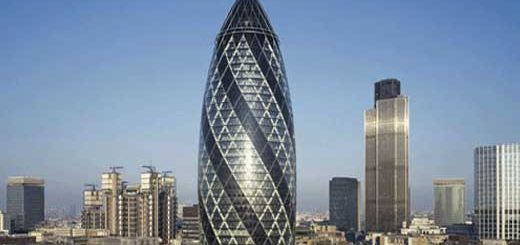 Tidjane Thiam, Prudential’s ambitious boss, is planning to review the company’s structure next year in a move that could lead to the long-mooted break-up of Britain’s biggest insurance group. Prudential is on course to meet the tough profit targets set by Mr Thiam two years ago and experts believe this could be the catalyst for the most radical re-shape in the company’s 164-year history. Mr Thiam, who has been chief executive of Prudential since 2009, has spoken of creating ‘optionality’ for the group’s UK, US and Asian operations as well as its asset management arm M&G. [The Independent]
Tidjane Thiam, Prudential’s ambitious boss, is planning to review the company’s structure next year in a move that could lead to the long-mooted break-up of Britain’s biggest insurance group. Prudential is on course to meet the tough profit targets set by Mr Thiam two years ago and experts believe this could be the catalyst for the most radical re-shape in the company’s 164-year history. Mr Thiam, who has been chief executive of Prudential since 2009, has spoken of creating ‘optionality’ for the group’s UK, US and Asian operations as well as its asset management arm M&G. [The Independent]
Brinkmanship in Washington took America into a final day scramble to avert the fiscal cliff, after talks between Senate leaders broke up with no deal in sight. Harry Reid, the Democratic Senate majority leader, and Mitch McConnell, who heads the chamber’s Republican minority, ended more than a day of on-off talks on Capitol Hill without an agreement and with nothing for lawmakers to vote on. It brings closer the prospect that America could plunge off the so-called fiscal cliff at midnight on Monday, triggering swingeing spending cuts and across-the-board tax increases. Talks were expected to resume on Monday, but with the clock ticking inexorably towards the new year deadline, few in Washington were optimistic about a deal. [The Guardian]
All eyes will be on Ftse 100 high street titan Next on Thursday, as the retail bellwether offer up some of the sector’s first hard news on festive sales. Retail experts said that they expect Next’s internet sales to increase by as much as 15-20 per cent, which would confirm recent suggestions that shoppers are increasingly looking to buy online. [The Independent]
Britain’s most influential business lobby has committed itself to arguing to keep Britain at the centre of the European Union — just as the Prime Minister considers plans for a referendum that could lead to an exit. In an unequivocal call to arms in the EU membership debate, the CBI will state today that Britain can carve itself a new role in global trade. [The Times]
Guardian Media Group has received expressions of interest for its Auto Trader subsidiary that could lead to a £600m windfall for the struggling newspaper group. A number of informal approaches are understood to have been made for Trader Media Group by private equity investors, whose interest was sparked after GMG held talks last month over a possible sale to co-owners, Apax Partners. A sale of GMG’s 50.1pc stake in TMG could raise up to £600m, helping to offset the losses from the company’s newspapers The Guardian and The Observer. The Telegraph]
China’s economy has ended the year on a strong note after a gauge of its manufacturing sector rose to a 19-month high. The HSBC purchasing managers’ index for December climbed to 51.5 from 50.5 a month earlier, according to figures published on Monday. In rising further above the midpoint of 50, the reading signalled an accelerated pace of expansion. Although China is still set for sub-8 per cent growth in 2012, its weakest in more than a decade, momentum picked up noticeably in the fourth quarter after the government increased its spending on infrastructure. [Financial Times]
British businesses are growing increasingly bullish that the country will avoid a triple-dip recession. Fears that the economy could once again suffer contraction have fallen to an eight-month low, according to a survey of 300 £1m-plus turnover companies undertaken earlier this month. The Lloyds Bank Commercial Banking Business Barometer shows that companies in the North and South are far more bullish than those in the Midlands. [The Independent]
The Opec oil cartel, led by Saudi Arabia, will pocket a record of more than US$1tn in net oil revenues in 2012 as the annual average price for Brent, the benchmark, heads to an all-time high in spite of weak economic growth. The windfall will provide fresh capital to some of the world’s largest sovereign wealth funds. United Arab Emirates, Saudi Arabia and Kuwait, the most influential members of the cartel, are home to three of the world’s 10 largest SWFs by assets under management, according to estimates by the SWF Institute. [Financial Times]







